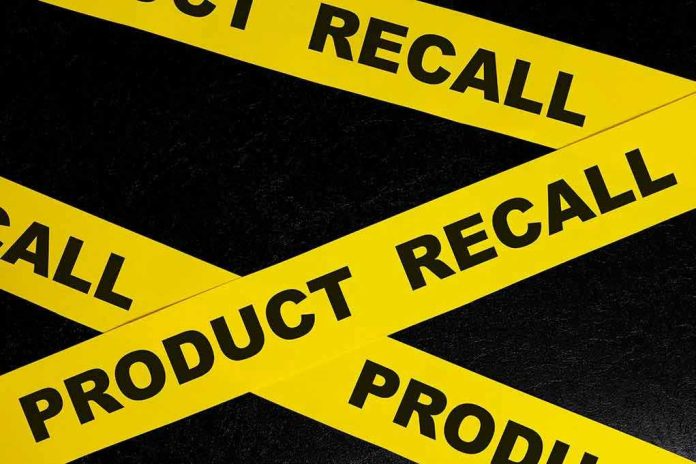
As the deadly pasta recall expands across 18 states, Americans are left questioning how government regulators failed to protect families from a preventable tragedy.
Story Snapshot
- Six deaths and over 60 illnesses linked to contaminated pre-packaged pasta have triggered a sweeping recall affecting 18 states.
- Evidence points to deep flaws in food safety oversight and regulatory enforcement, leaving consumers at risk.
- The recall exposes vulnerabilities in America’s supply chain, as global sourcing and bureaucratic gaps undermine basic protections.
- Calls for accountability intensify as investigations reveal systemic failures reminiscent of previous food safety crises.
High Death Toll Forces National Reckoning on Food Safety
A major food recall now stretches across 18 states after contaminated pre-packaged pasta caused at least six deaths and sent dozens more to emergency rooms. The implicated manufacturer, previously considered a model of safety, issued a voluntary recall after FDA labs confirmed a dangerous *Bacillus cereus* toxin in several product batches. The CDC quickly linked the outbreak to the pasta products, triggering public health warnings and a wave of consumer anxiety. This crisis has left many Americans frustrated, especially those who feel basic safeguards have been sacrificed for corporate convenience and government inaction.
Manufacturers and regulators alike are scrambling to explain how such a failure happened on their watch. Despite the United States spending billions on food safety every year, repeated lapses—like this one—demonstrate that bureaucratic red tape and globalist supply chains can’t guarantee family safety. The FDA and CDC are now conducting inspections and reviewing supply chain records, but the damage is done: shelves are being cleared, hospital beds are filling, and public trust is eroding. This incident comes on the heels of other food safety scandals, including the 2018 romaine lettuce E. coli outbreak and the 2022 infant formula recall, both of which exposed similar cracks in regulatory oversight.
Regulatory and Supply Chain Failures Erode Consumer Confidence
America’s food system is increasingly reliant on global supply chains and complex distribution networks, making it difficult to trace contaminants and respond quickly to outbreaks. Many grocery chains and food service providers depend on a handful of massive suppliers, magnifying the impact when something goes wrong. Even with overlapping oversight from the FDA and USDA, limited resources and inspection gaps persist. The present recall demonstrates that, despite years of warnings and reforms, government agencies still struggle to keep pace with the risks posed by modern food production. For conservatives who value accountability and common sense, this is yet another example of bureaucratic failure putting American families last.
The expanding recall has already resulted in tens of millions in losses for manufacturers and retailers, with potential lawsuits looming. More importantly, the ongoing investigation is shining a spotlight on the lack of transparency and responsiveness in both industry and government. Calls for congressional hearings and regulatory reform are growing louder, as lawmakers and consumer advocates demand real answers—not just apologies and empty promises. Industry experts point to the need for stronger traceability, improved pathogen detection, and a rebalanced approach that prioritizes American safety over globalist profit margins.
Long-Term Implications for Industry, Policy, and Families
This deadly outbreak is expected to have far-reaching effects not only on the food industry, but on public policy and consumer behavior as well. In the short term, there is an immediate threat to public health, with more consumers seeking emergency care and a growing sense of mistrust in processed foods. The economic impact extends beyond the manufacturer to suppliers, retailers, and employees—many of whom are now facing uncertainty. Politically, the crisis is fueling renewed demands for stricter oversight, congressional inquiry, and a return to policies that put American families first.
Massive Pasta Recall Tied to 6 Deaths Expands to 18 States—What to Know https://t.co/6IDMqGrRpM
— TheRightBlue (@therightblue) November 4, 2025
Long-term, the food industry may see a shift toward local and organic brands, as consumers lose faith in mass-produced products. Regulatory agencies face pressure to overhaul inspection regimes and close the loopholes that allow contaminated goods to reach dinner tables. For conservatives, the message is clear: American lives and values must not be sacrificed at the altar of bureaucratic inefficiency or globalist agendas. The pasta recall is a wake-up call for renewed vigilance, accountability, and a food supply system that truly puts the nation’s families first.
Sources:
2025 Recalls of Prepared Pasta Meals — FDA.gov
Listeria outbreak grows with more deaths, illnesses reported — Fox Business
Deadly multistate Listeria outbreak tied to prepared pasta meals expands — CIDRAP
Listeria outbreak in pasta meals linked to six deaths — The Guardian

















